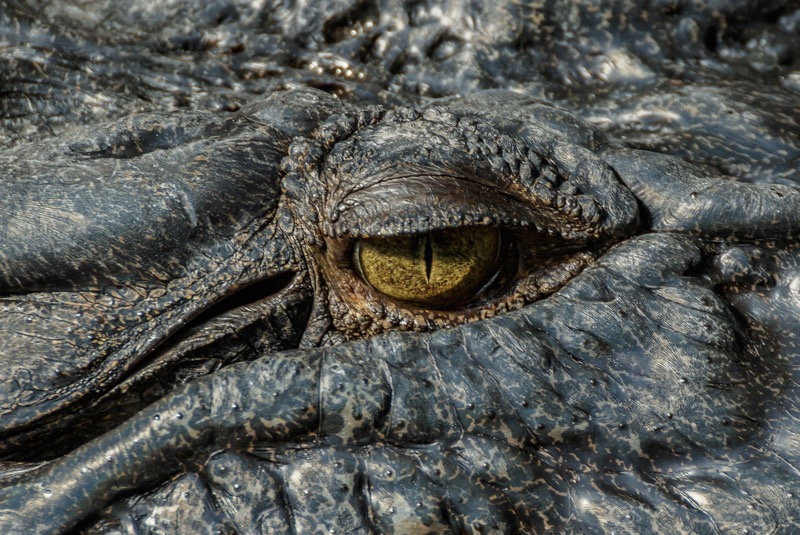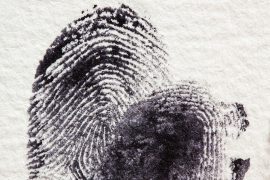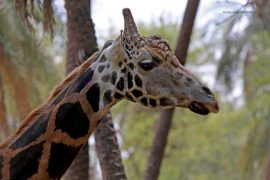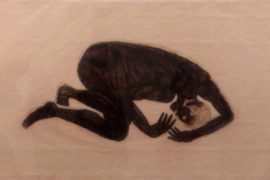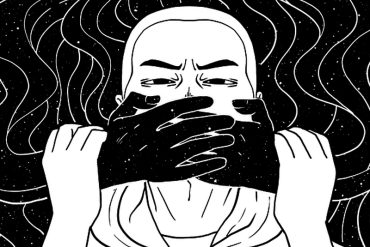Crocodiles hold a special place in ancient Egypt. People worshipped these reptiles as they represented Sobek, the Egyptian god with the face of a crocodile. It was in this culture that the expression “crocodile tears” came into existence. The phrase remained widely used in the English language for years.
“Crocodile tears” mean insincere remorse with a sinister connotation. So if someone cries about something they do not care about to put on a show, they are crying crocodile tears. In simple terms, tears shed out of insincerity are “crocodile tears.”
A singer named Dale Watson even wrote a song about “Crocodile Tears.” It reads:
Crocodile tears, they’re tearing me apart. I know they’re not sincere, still they break my heart.
The widely used phrase comes from a myth. According to legend, when crocodiles tear the meat of their prey, they bawl. According to the website Crocodilian.com, this belief gained popularity in the 1200s. A missionary wrote that if a crocodile came across a man near the river, it would kill him and shed tears before swallowing him.
According to writings of the ancient Greek historian Plutarch, this notion prevailed for centuries, even in regions without crocodiles. The idea appears in the fourteenth century English book, The Travels of Sir John Mandeville, which documents a knight’s travels throughout the globe.
“In that country be a general plenty of crocodiles …These serpents slay men and they eat them weeping,” reads a passage from the book. It gained much popularity after. It also appears in the works of William Shakespeare.
However, did you know that crocodiles do actually cry as they consume their food? Additionally, there is a syndrome called crocodile tears that connects the legend to a medical condition.
A researcher at the University of Florida’s Zoology department, Kent Vliet, found crocodiles shed tears while munching on their meal. He also concluded while they may be very much enjoying the snack, the crying is nothing sinister. It could be due to their physiology.
Vliet examined the behaviour of four captive caimans and three alligators, which are crocodile kin. Five out of seven reptiles welled up while eating, with their eyes foaming and gushing.
While the myths suggest that crocodiles cry while chomping down human meat, Vliet had to decide against it. He just settled for staple alligator food at the St. Augustine alligator farm.
He fed them on dry land, as the alligators and caimans received training to do so. Crocodiles, on the other hand, received their food in water due to their aggressive nature.
Vliet deemed it necessary that the reptiles be fed on land. To notice their tears in the water would have been rather tricky- the preexisting wetness in their eyes- if you wonder why. However, Vliet feels even crocodiles would have a similar reaction. They are, after all, closely related to alligators and caimans.
Early in the twentith-century, a scientist attempted to test the myth with an experiment of his own too. He rubbed onions and salt into crocodile eyes. Yes, cutting onions often makes humans cry, and salt in the eyes must be a very unpleasant experience too. But No, the crocodile did not cry.
Malcolm Shaner had an explanation. Shaner is a consultant in neurology at Kaiser Permanente in West Los Angeles and an assistant professor of neurology at the University of California in Los Angeles. He says the reason behind the failed experiment was that the 20th-century scientist did not evaluate crocodiles while they were eating. The myth clearly suggested that.
Shaner was interested in these theories and myths as he was looking at a somewhat unusual syndrome linked to human facial palsy. Crocodile tear syndrome (CTS) is also known as a gusto-lacrimal response or Bogorad syndrome, and it is characterised by uncontrollable crying as a patient eats or drinks.
The syndrome was initially documented in 1913. The medical literature records numerous instances since then. The most common reasoning behind the occurrence is when a patient recovers from a Bell’s Palsy or facial palsy, the gustatory nerves redirect from the face.
When the nerves are damaged, they may reroute via the lacrimal gland, causing tearing when the patient feeds. All this simply means that the recovery causes a nerve mix-up. However, several theories float attempting to explain the phenomenon.
Many treatment techniques have been attempted in the past to halt the flow of tears. However, many past medical treatments also cause severe side effects to patients. Therefore, the approaches were adjusted over time.
Crocodile tears syndrome is treated based on the degree of its effects and the needs of the patients. Doctors often suggest counselling and frequent monitoring for mild instances. For severe cases, surgical alternatives are accessible. Botulinum toxin injection into the lacrimal gland is the most extensively used therapy for crocodile tears syndrome.
When Vliet carried out his observations, he could not confirm the reason behind crocodile tears. However, he decided it was no “rascally reptilian remorse.”
“In my experience, when crocodiles take something into their mouth, they mean it,” Vliet told Science Daily. Vliet thinks that crocodiles cry from hissing and puffing, which is a common habit while eating. Air drives via the sinuses and may mingle with tears in the lacrimal glands of the crocodiles, which drain into the eye.
The knowledge about crocodile anatomy explains that crocodile tears do not have any emotions behind them. If at all, pleasure for devouring the snack, but definitely not some kind of nasty trap its prey. Yet, the expression persists in modern literature to describe when people fake sadness.
Apparently, Crocodile tears contain proteins and minerals, and some butterflies are said to even sip on them. So maybe, the crocodile tears should not be considered that bad after all.
-30-
Copyright©Madras Courier, All Rights Reserved. You may share using our article tools. Please don't cut articles from madrascourier.com and redistribute by email, post to the web, mobile phone or social media.Please send in your feed back and comments to [email protected]

